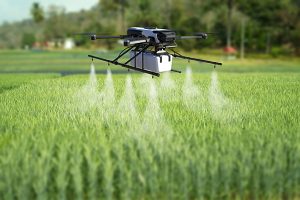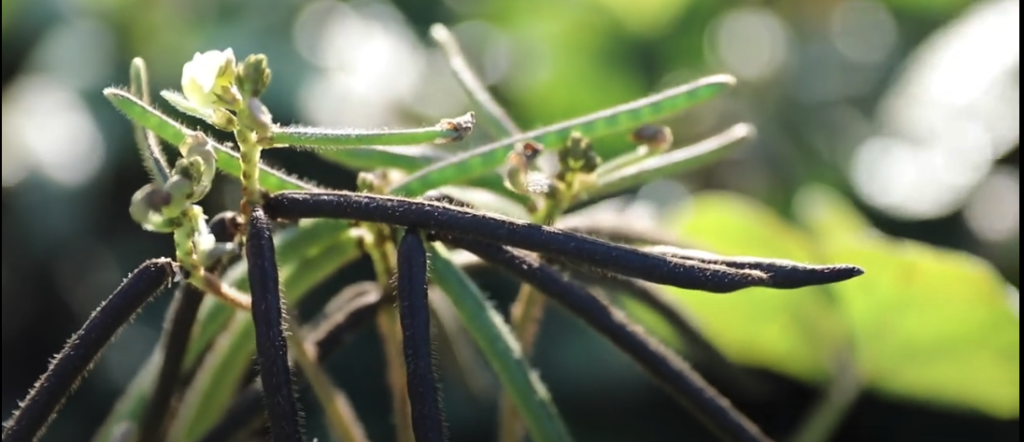News stories shared in the December 2023 Central Issue appear below. Subscribe to receive the Central Issue newsletter monthly via email.
North Central IPM Center Updates
Mini-grant Funding Still Available
Have an idea to increase the use of pest management in the North Central region? Get started with a $5,000 mini-grant from the North Central IPM Center.
Mini-grants are also available for projects anywhere in the United States that focus on efforts to improve diversity, equity, inclusion, and accessibility to pest management information and resources.
Pests and Progress Speaker Signup
Have any insect, disease or weed updates to share? Contact the North Central IPM Center to sign up as a speaker for a Pests and Progress webinar in 2024. Presentations only need to be 20 minutes long, and there will be 10 minutes for questions. Webinars are held the third Wednesday of each month at 1:30 pm ET (12:30 pm CT).
January Webinar: Crop Advisors’ Perspectives on Pesticide Resistance Management
 Join Dr. Katherine Dentzman, Assistant Professor of Rural Sociology at Iowa State University, as she shares insights about how crop advisors influence the use of pest management practices among farmers. Dentzman analyzed a national survey of certified crop advisors to better understand crop advisor perspectives on the issue of pesticide resistance, what management options they recommend, and any barriers they may face to assisting farmers in dealing with resistance issues.
Join Dr. Katherine Dentzman, Assistant Professor of Rural Sociology at Iowa State University, as she shares insights about how crop advisors influence the use of pest management practices among farmers. Dentzman analyzed a national survey of certified crop advisors to better understand crop advisor perspectives on the issue of pesticide resistance, what management options they recommend, and any barriers they may face to assisting farmers in dealing with resistance issues.
Register now to receive the webinar link. This webinar will be held on Wednesday, January 17 at 1:30 pm ET (12:30 pm CT). “Pests and Progress” webinars are free, and more details are on the North Central IPM Center website.
Great Lakes Urban Agriculture Working Group Pest Cards
The Great Lakes Urban Agriculture Working Group distributed a survey to learn which urban pests are causing problems and where gaps exist in management knowledge. In response to survey results, fourteen pest cards have been created and shared, featuring topics from groundhogs, deer and rabbits to squash bugs and aphids. Check out the full list of pest cards on the Purdue University’s Urban Agriculture page. Each of these fact sheets includes general information about the problem pest along with management recommendations. Both English and Spanish versions are available.

War Against Weeds Podcasts
The War Against Weeds Podcast Working Group began in 2021. Since then, over 100 podcasts have been produced with topics ranging from harvest weed seed control to cover crops and use of electricity for weed control. Recent episodes include herbicide modes of action, weed management perspectives from Europe and targeted herbicide applications.
Check out the full list of episodes on the War Against Weed website.
New Episodes—I See Dead Plants Podcasts
- I’m Thankful for Cranberry Fruit Rot Research
Interviewee: Dr. Leslie Holland of University of Wisconsin Madison - Is Beech Bark Disease Worse Than the Big Bad Wolf? (Part 1)
Interviewees: Dr. Deb McCullough and her graduate student Nick Zoller of Michigan State University - Is Beech Bark Disease Worse Than the Big Bad Wolf? (Part 2)
Interviewees: Dr. Deb McCullough and her graduate student Nick Zoller of Michigan State University
US Environmental Protection Agency Updates
EPA Seeks Public Comment on Petition for Rulemaking to Require Efficacy Data for Systemic Insecticides
Do you use neonicotinoids and other systemic insecticides? Now is your chance to share feedback about how you use them and why. The U.S. Environmental Protection Agency (EPA) is reviewing rules for neonicotinoid and systemic insecticides to determine whether the benefits of these products outweigh the environmental costs.
Be sure to share your comments by January 23, 2024. To view the petition or submit a comment, go to www.regulations.gov and search for docket ID EPA-HQ-OPP-2023-0428.
EPA Posts Final Endangered Species Act Biological Opinion for Enlist Herbicide Products
The U.S. Environmental Protection Agency (EPA) is working to determine whether Enlist herbicides pose a threat to species listed under the Endangered Species Act. The EPA has been working with the U.S. Fish & Wildlife Service to prepare the final Biological Opinion, which is now available. In general, Enlist products used in accordance with the label are not likely to jeopardize listed species or adversely modify their critical habitats, but there are areas where additional application rules may apply due to proximity to critical habitat. Any areas where extra rules apply can be found on the Agency’s Bulletins Live! Two system, along with the mitigation options. The EPA intends to have label revisions approved in advance of the next growing season.
The full Enlist Biological Opinion can be accessed at docket ID EPA-HQ-OPP-2021-0957 at regulations.gov.
EPA Releases Draft Biological Evaluation of 11 Rodenticides’ Effects on Endangered Species
The U.S. Environmental Protection Agency (EPA) has created a draft Biological Evaluation to assess whether 11 rodenticides affect species listed under the Endangered Species Act. While most listed species will not be affected (88%), there are potential effects for others.
Based on these findings, updates will be made to rodenticide rules. For example, application of rodenticides directly to water will not be allowed. Since there is not much risk of drift of rodenticides, restrictions for applying them near critical habitats will be revisited.
The 11 rodenticides evaluated in the draft Biological Evaluation include chlorophacinone, diphacinone and its sodium salt, warfarin and its sodium salt, brodifacoum, bromadiolone, difenacoum, difethialone, bromethalin, cholecalciferol, strychnine, and zinc phosphide.
Be sure to share your comments by January 29, 2024. To view the petition or submit a comment, go to www.regulations.gov and search for docket ID EPA-HQ-OPP-2023-0567.
IPM Highlights
Climate-Smart IPM: Key to U.S. Ag Resilience
Looking for a way to explain climate change, how we know it is happening, and what challenges it may bring to crop production? Look no further. This summary is easy to understand and looks to the future for ways that integrated pest management can help prepare for changing pest populations and even reduce agriculture’s impact on climate change.
What’s Bugging You 2024 Webinar Series
The list of topics for the 2024 “What’s Bugging You” monthly webinar series is available. Register for webinars that interest you or watch past episodes.
Drones for Spraying Pesticides

Can drones be used to direct spray applications exactly where they are needed? Check out this “Field Crops Virtual Breakfast” webinar featuring Dr. Erdal Ozkan, professor in the Department of Food, Agriculture and Biological Engineering at The Ohio State University to learn about the potential for combining drones and agriculture. A fact sheet covering similar topics is available as well.
Preparing for Next Season
Improving Wine Grapes for American Growers and Winemakers
Recent research on grape varieties helps growers make decisions about which grape variety to plant. Frost tolerant and cold-hardy varieties were developed and trialed. Grape varieties were also tested for levels of acids and tannins as well as resilience against virus and diseases. Grape trials were planted at multiple universities in the Midwest and Northeast regions; read more about the studies and conclusions in this two-page summary.
Mungbeans: Potential for Crop Diversification in Kansas
When looking for an option for rotating crops in Kansas, consider mungbeans. Mungbeans are increasing in popularity and provide nutritious protein-rich seeds. They fix nitrogen in the soil just like soybeans. Read more about growing mungbeans in Kansas or check out this video about breeding mungbeans in the Midwest.

Now Is the Time To Make Your Weed Management Plan for the 2024 Growing Season
As you prepare for purchasing seed and managing weeds in 2024, use these questions to guide your herbicide choices.
Using Spring Oats as a Late Season Cover Crop or for Forage
This “Bumper Crop” video from the University of Wisconsin-Madison discusses the option of growing a winter wheat cover crop followed by a spring oats cover crop for forage. Suggested planting rates along with harvest and planting times are shared.
Classical Weed Biological Control 101 Short Course
The Classical Weed Biological Control 101 Short Course is a web-based short course that may be completed at your own pace. The videos are sequential so after you finish a video and complete a quiz, the next video becomes available. Registration is free.
Resources
2024 Crop Hour Webinars
Details for the spring 2024 Crop Hour webinars are available from South Dakota State University Extension. Crop hour webinars will be held on Tuesdays, Wednesdays, and Thursdays from January 9 to March 7, 2024, at 11:00 a.m. ET (10:00 a.m. CT). Topics range from precision agriculture to pulse crops; view the full list of topics and register here.
December Weed of the Month: Saltcedar
The Minnesota Department of Agriculture has added saltcedar to Minnesota’s noxious weed list. While saltcedar has been planted as a windbreak or for erosion prevention, its high seed production and quick growth can help it take over natural spaces. The leaves of saltcedar are also covered in salt so when the shrub drops its leaves, the surrounding soil becomes more salty. This also decreases germination of other plant species.
What’s on Your Seed: Soybean Seed Treatment List (WI)
While soybean seed treatments were originally introduced to help protect against disease, these treatments have become much more complex. Seed treatments are available for a range of crops along with ingredients to protect against disease, insects and nematodes. Check out this list for a visual summary of treatment options.
K-State 2024 Chemical Weed Control Guide is Now Available Online
A comprehensive guide for herbicide use is available from Kansas State University. Topics include everything from herbicide application to herbicide recommendations for specific crops and specific challenges (such as noxious weeds or trees on rangeland).
CropsTV
Now is the time to register for season 4 of CropsTV from Iowa State University. The first episodes will be posted beginning January 2, 2024, and by February 13, all of season 4 will be available with 35 new episodes. Check out the full schedule. Continuing Education Units (CEUs) are available. Access to episodes will last until April 5, 2024.

